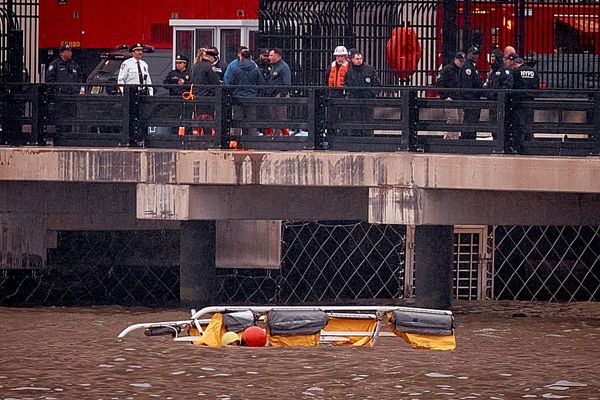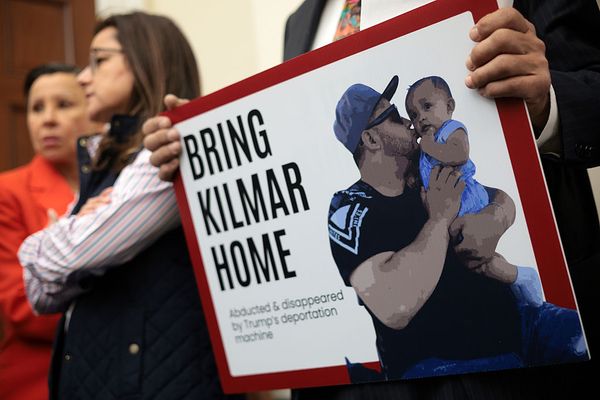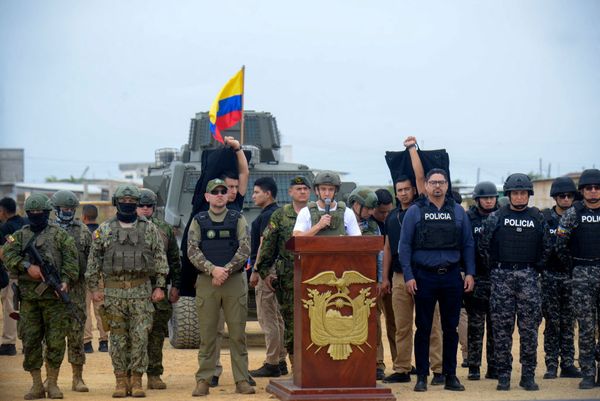
Fighting around the key eastern Ukraine town of Bakhmut has descended into a bloody morass with hundreds of dead and injured reported daily. As Russia moved fresh formations to the area in recent weeks, neither Russian or Ukrainian forces were able to make a significant breakthrough after months of fighting
Russian forces continue to shell residential infrastructure and housing in the recently liberated city of Kherson, according to Ukraine’s military. In its latest update, the US thinktank the Institute for the Study of War (ISW) said Russian troops were digging trenches and fortifying their positions in preparation for a possible Ukrainian counteroffensive in eastern Kherson.
Russians are sporadically shelling cities with no apparent strategic aim other than to cause casualties. The Guardian visited a residential district in Dnipro, where a series of houses were destroyed by a fragmentation warhead, designed to inflict maximum casualties, which had landed on Saturday.
Ukraine’s president, Volodymyr Zelenskiy, has claimed Russia will soon launch a series of new missile strikes on his country, warning his defence forces and citizens to prepare for the attack. He gave the ominous caution in his Sunday evening address.
Nato’s secretary general, Jens Stoltenberg, has warned that Russia will probably continue to attack Ukraine’s power grid, gas infrastructure and basic services. He said Russia’s president, Vladimir Putin, was trying to use “the winter as a weapon of war against Ukraine”.
The Zaporizhzhia nuclear power plant remains under Russian control, the Russia-installed administration of the occupied city of Enerhodar, home to the facility, has said. The announcement comes after the head of Ukraine’s state-run nuclear energy firm suggested that there were signs that Russian forces might be preparing to leave the occupied plant.
Ukraine’s prosecutor general’s office has said 329 children are currently considered missing in Ukraine, while 12,034 have been deported to Russia. According to the Ukrainian government’s children of war portal, 440 children have been killed as a result of Russia’s war and 851 children are now reported as injured.
Russia has “unilaterally postponed” talks with the US aimed at resuming nuclear weapons inspections in Cairo this week, a US state department spokesperson confirmed. Talks between US and Russian officials were scheduled to begin tomorrow. The Russian foreign ministry confirmed in a statement that talks would no longer take place this week.
The Pentagon is considering a Boeing proposal to supply Ukraine with cheap, small precision bombs fitted on to abundantly available rockets, allowing Kyiv to strike far behind Russian lines, according to a Reuters report. US and allied military inventories are shrinking, and Ukraine faces an increasing need for more sophisticated weapons as the war drags on.
Russia and the US have ways to manage nuclear risks at the level of intelligence agencies, chargée d’affaires of the US embassy in Moscow Elizabeth Rood told Russia’s state news agency Ria Novosti, adding that for now there were no meetings scheduled.
The Kremlin’s spokesperson has denied reports that Russian forces were planning to leave the Zaporizhzhia nuclear plant in Ukraine, telling reporters they should not look for signs where there were none.
The Kremlin said it welcomed a Vatican offer to provide a negotiating platform to resolve the Ukraine conflict, but that Kyiv’s position made this “impossible”. Pope Francis reiterated 10 days ago that the Vatican was ready to do anything possible to mediate and put an end to the conflict between Russia and Ukraine, in an interview with the Italian daily La Stampa.
The mayor of Kyiv has traded verbal jabs with Zelenskiy and his allies over how to help residents withstand power cuts. Former professional boxer Vitali Klitschko said 430 “warming centres” were helping residents cope with the effects of Russian attacks on power stations, and more than 100 extra centres were planned in case of extreme conditions. Klitschko said Zelenskiy’s allies had engaged in “manipulation” about the city’s efforts.
Foreign ministers of Estonia, Finland, Iceland, Latvia, Lithuania, Norway and Sweden visited Kyiv today to show support for Ukraine. Gabrielius Landsbergis, the Lithuanian foreign minister, vowed that Ukraine would win despite Russia’s “barbaric brutality”.
Olena Zelenska, the wife of Ukraine’s prime minister, has visited Downing Street during her visit to London to discuss the prevention of sexual violence in conflicts. Zelenska met with Britain’s foreign secretary, James Cleverly, and prime minister Rishi Sunak’s wife, Akshata Murty.
Hundreds of Ukrainians fled Kherson city on Sunday as Russian shelling intensified. The liberation of Kherson earlier this month marked a major battlefield gain for Kyiv, but the population has struggled with a lack of water, heating and electricity.
Britain will promise to maintain or increase military aid to Ukraine next year, according to an extract of a speech released by the office of the prime minister, Rishi Sunak, which he plans to deliver on Monday. “We will stand with Ukraine for as long as it takes. We will maintain or increase our military aid next year. And we will provide new support for air defence,” Sunak will reportedly say.
The UK will provide Brimstone 2 missiles, a precision-guided missile, to Ukraine as part of its latest aid package. “This aid has played a crucial role in stalling Russian advancements,” the UK Ministry of Defence said in a statement.
Ukrainian authorities are gradually restoring power, aided by the reconnection of the country’s four nuclear plants, but millions of people are still without heat or electricity after the most devastating Russian airstrikes of the war. “We have been restoring electricity generation and supply day after day,” Zelenskiy said in his Sunday night address.
Russian opposition leader Alexei Navalny’s survival may depend on his value to Vladimir Putin as a future bargaining chip, his chief aide has said. Leonid Volkov, speaking on a visit to London, added that Navalny had lost access to his family and was being permanently detained in a “8 by 12ft” cell after being forced into indefinite solitary confinement by Russian authorities last week.







